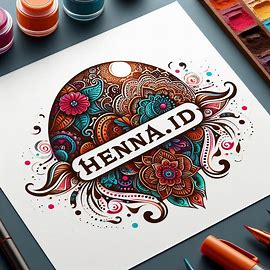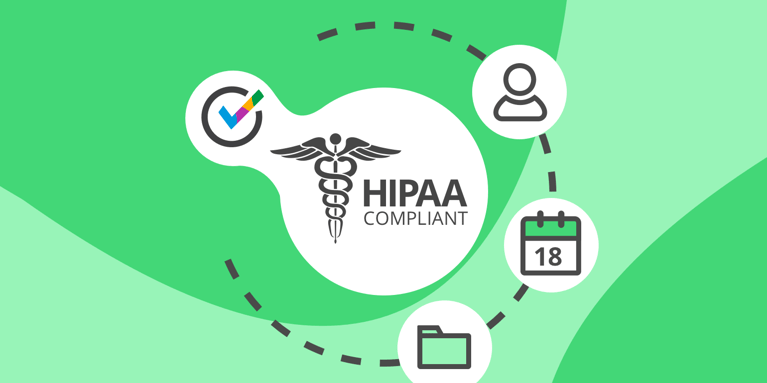In the healthcare industry, managing sensitive patient information is a top priority. With the rise of digital tools and systems designed to streamline operations, healthcare organizations need a reliable way to ensure that patient data is kept secure while still being accessible to authorized personnel. This is where a HIPAA Compliant CRM (Customer Relationship Management) system comes into play.
In this article, we will explore what a HIPAA-compliant CRM is, why it’s essential for healthcare organizations, and what features to look for when choosing the right system to maintain compliance and ensure data security.
What is HIPAA?
HIPAA, or the Health Insurance Portability and Accountability Act, is a U.S. law designed to protect patient data privacy and security. It establishes strict guidelines for healthcare providers, insurers, and business associates regarding the handling of Protected Health Information (PHI). HIPAA ensures that healthcare organizations take necessary measures to safeguard patient information from unauthorized access, theft, or breaches.
What is a HIPAA Compliant CRM?
A HIPAA Compliant CRM is a specialized Customer Relationship Management system that meets the privacy and security standards set forth by HIPAA. Traditional CRMs are designed to help businesses manage customer relationships and streamline processes such as sales, marketing, and support. However, when dealing with sensitive patient data, a HIPAA-compliant CRM system goes a step further to ensure the system is fully secure and adheres to HIPAA guidelines.
By using a HIPAA-compliant CRM, healthcare organizations can manage patient interactions, appointments, and communications while safeguarding PHI. These systems incorporate features such as encryption, access control, and audit trails to prevent unauthorized access and ensure that healthcare professionals can manage patient data in a secure and compliant manner.
Why is HIPAA Compliant CRM Important?
1. Patient Privacy Protection
The primary reason a HIPAA-compliant CRM is crucial in healthcare is to protect patient privacy. HIPAA mandates that patient data, such as medical histories, treatment plans, and personal identification details, must be stored securely. A compliant CRM ensures that all patient interactions, data storage, and communications are handled in accordance with HIPAA’s stringent privacy requirements.
2. Data Security
HIPAA-compliant CRMs are designed with built-in security features such as encryption, password protection, and secure data storage, reducing the risk of data breaches. Given the sensitive nature of patient information, healthcare providers need to implement systems that minimize the chances of unauthorized access, ensuring the highest level of security.
3. Compliance Assurance
Non-compliance with HIPAA can lead to hefty fines and legal consequences. By using a HIPAA-compliant CRM, healthcare organizations can stay on the right side of the law, ensuring they meet regulatory standards. This reduces the risk of penalties and reputational damage, fostering trust with patients.
4. Improved Patient Communication
With a HIPAA-compliant CRM, healthcare providers can streamline communication with patients while maintaining privacy. Secure messaging systems within the CRM enable healthcare professionals to send appointment reminders, medical updates, and other important information without compromising patient confidentiality.
5. Efficient Workflow Management
In addition to privacy and security features, HIPAA-compliant CRMs offer features that streamline administrative tasks such as appointment scheduling, patient follow-ups, and document management. This allows healthcare providers to operate more efficiently while keeping patient data secure.
Key Features of a HIPAA Compliant CRM
When choosing a CRM system for a healthcare organization, it’s essential to look for specific features that ensure compliance with HIPAA standards. Here are some of the key features of a HIPAA-compliant CRM:
1. Data Encryption
Encryption is a critical feature in protecting patient data. HIPAA-compliant CRMs should offer end-to-end encryption, which ensures that all data—whether stored or transmitted—remains secure and unreadable to unauthorized users.
2. Access Control
Only authorized personnel should have access to PHI. A HIPAA-compliant CRM provides granular access control features, allowing administrators to set permissions and control who can view or edit sensitive information.
3. Audit Trails
HIPAA requires that organizations maintain records of who accessed patient data and when. A HIPAA-compliant CRM includes audit trail features that track all actions taken within the system. This helps healthcare organizations monitor user activity and quickly identify any unauthorized access or suspicious behavior.
4. Secure Communication
Communication between healthcare providers and patients must be secure. HIPAA-compliant CRMs offer secure messaging systems and email communication features that prevent PHI from being shared through unsecured channels.
5. Data Backup and Disaster Recovery
A reliable backup system is essential to ensure that patient data is not lost in case of a system failure or cyberattack. HIPAA-compliant CRMs often include automatic data backup and disaster recovery features, ensuring patient information can be restored quickly if needed.
6. Two-Factor Authentication (2FA)
To further enhance security, a HIPAA-compliant CRM should offer two-factor authentication (2FA). This adds an additional layer of protection by requiring users to provide a second form of identification (such as a one-time code sent to their phone) when logging in.
7. Training and Support
Given the complexity of HIPAA regulations, CRM vendors offering HIPAA-compliant solutions often provide specialized training and support to help healthcare organizations implement the system properly and stay compliant with regulatory changes.
Popular HIPAA Compliant CRM Solutions
There are several CRM platforms designed specifically for healthcare organizations that offer HIPAA-compliant features. Some of the most popular options include:
1. HubSpot CRM
While HubSpot is widely known for its versatility and user-friendliness, it also offers a HIPAA-compliant version of its CRM that is suitable for healthcare organizations. It includes encryption, secure communication, and other key features needed to stay compliant.
2. Salesforce Health Cloud
Salesforce offers a healthcare-specific CRM solution known as Health Cloud, which is fully HIPAA-compliant. This solution provides advanced patient management features, secure communication, and integration with other healthcare systems.
3. Zoho CRM
Zoho CRM offers a HIPAA-compliant version with strong security features, including encryption and role-based access control. It’s suitable for smaller healthcare practices looking for an affordable yet compliant CRM solution.
4. Athenahealth
Athenahealth offers a cloud-based CRM solution for healthcare providers that ensures compliance with HIPAA standards. It includes features for patient relationship management, scheduling, and medical billing, with a focus on security and compliance.
Conclusion
In the healthcare industry, safeguarding patient data is not just a regulatory requirement but also a critical part of building trust with patients. A HIPAA-compliant CRM ensures that healthcare organizations can manage patient relationships securely and efficiently while adhering to the strict privacy and security regulations set by HIPAA.
By choosing the right HIPAA-compliant CRM, healthcare providers can enhance their workflow, streamline communication, and improve patient care, all while minimizing the risks associated with data breaches or non-compliance.
Investing in a HIPAA-compliant CRM is not just about protecting data—it’s about maintaining a high standard of care and operational efficiency in a healthcare setting. This is an investment in both security and the future of patient relationships.

